November 24, 2024 | 05:32 GMT +7
November 24, 2024 | 05:32 GMT +7
Hotline: 0913.378.918
November 24, 2024 | 05:32 GMT +7
Hotline: 0913.378.918
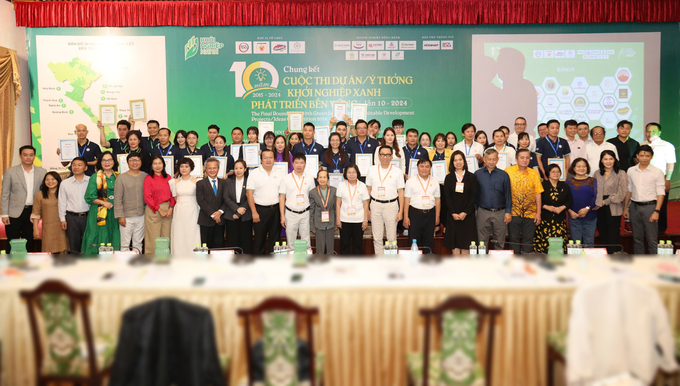
Finalists of the 10th annual Green Startup for Sustainable Development competition in 2024. Photo: BSA.
The competition is organized by the Vietnamese High-Quality Goods Business Association and the Business Studies and Assistance Center (BSA), in collaboration with various other units.
At the time of writing, 36 projects from 26 provinces and cities nationwide are competing in the final round. Notably, this year's Green Startup competition has attracted numerous young entrepreneurs and rural youth from ethnic communities such as Dao, Hmong, Muong, Nung, Tay, Thai, Raglai, among others, all of whom are presenting projects rooted in their local resources.
According to Vu Kim Anh, Deputy Director of the Business Studies and Assistance Center and Head of the competition’s organizing committee, BSA has continuously collaborated with various domestic and international experts, businesses, and organizations over the last ten years. This network of connections has supported and promoted projects within the Green Startup ecosystem by standardizing product quality and enhancing their competitiveness in the domestic market. Consequently, it provided a foundation for exports to international markets.
“The contestants are gradually becoming agro-entrepreneurs, who will bring deep-processed Vietnamese agricultural products to markets around the world,” Deputy Director Vu Kim Anh remarked.
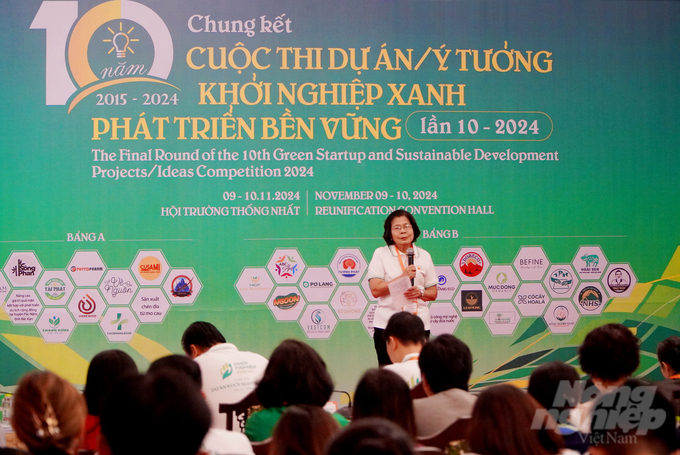
Vu Kim Hanh, Chairwoman of the Vietnamese High-Quality Goods Business Association and Director of the Business Studies and Assistance Center, delivered the opening speech at the competition. Photo: Nguyen Thuy.
According to Chairwoman Vu Kim Hanh, over its history of 10 years, the Green Startup competition saw the participation of over 2,300 contestants, with nearly 1,600 projects from 62 provinces and cities nationwide. As a result, the community of agro-entrepreneurs has grown both in number and in the diversity of products related to green agriculture, circular agriculture, and the use of local resources.
"After each competition, many projects were able to extend their reach into both domestic and global markets," Chairwoman Hanh added.
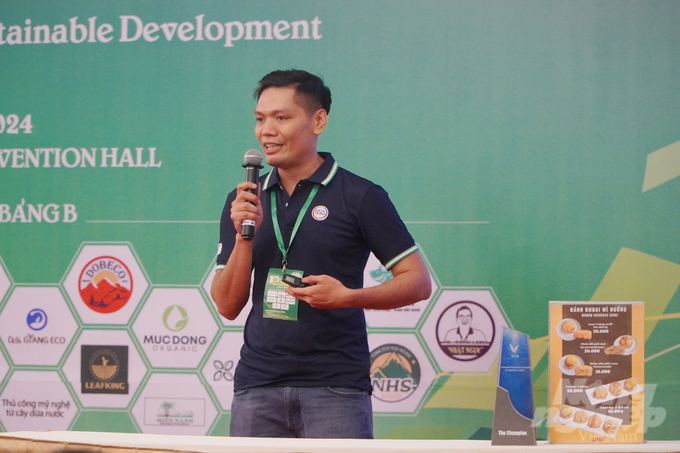
Contestant Mai Anh Tuan presenting the "Lowcarb Cassava Cake with Meat Filling" project. Photo: Nguyen Thuy.
For his project, "Lowcarb Cassava Cake with Meat Filling" (Ho Chi Minh City), contestant Mai Anh Tuan aims to create a cassava-based cake made from locally sourced cassava from Cu Chi, a region known for its fertile soil. The product has been advertised as an appealing complement to coffee.
"Cusami's cassava cake is made entirely from fresh cassava, providing a gluten-free snack that is rich in slow-digesting starch. This product is ideal for consumers on a diet, diabetic patients, and people with digestive issues. The product also offers sustainable energy, which helps with satiety and is effective in weight management. At the moment, we aim to introduce two main product lines: steamed cassava cakes and baked cassava cakes," shared contestant Mai Anh Tuan.
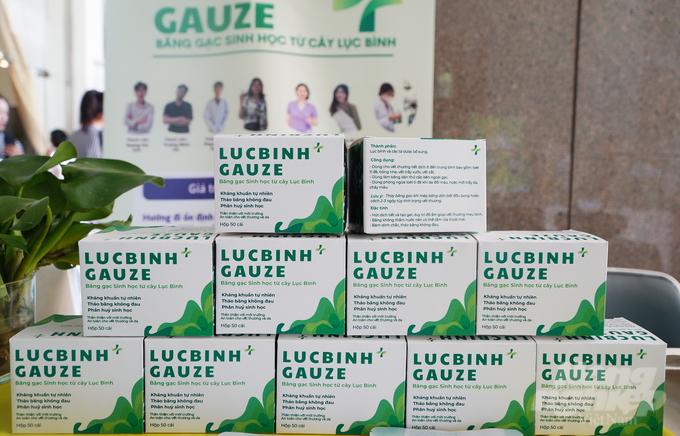
The "Lucbinhgauze: Biodegradable Bandages from Water Hyacinth" project. Photo: Nguyen Thuy.
The "Lucbinhgauze: Biodegradable Bandages from Water Hyacinth" project (Tra Vinh) features an innovative idea to extract cellulose from water hyacinth (Luc Binh in Vietnamese) plants to create hydrogel bandages.
"The invasive spread of water hyacinth in Tra Vinh as well as many other provinces in the Mekong Delta remains an unresolved environmental issue. In addition to blocking local rivers and canals, this species disrupts aquatic ecosystems. By utilizing advanced technology to extract cellulose from water hyacinth and produce a high-tech product such as hydrogel bandages, we can potentially process between 4 and 5 tons of water hyacinth every month," said Nguyen Ngoc Nhu Quynh, introducing the project. She explained that Lucbinhgauze is a medical bandage made from the cellulose fibers of water hyacinth, which has the ability to absorb fluids, form a gel, maintain moisture, and effectively protect wounds. Its key advantage lies in its biodegradability, which prevents environmental pollution.
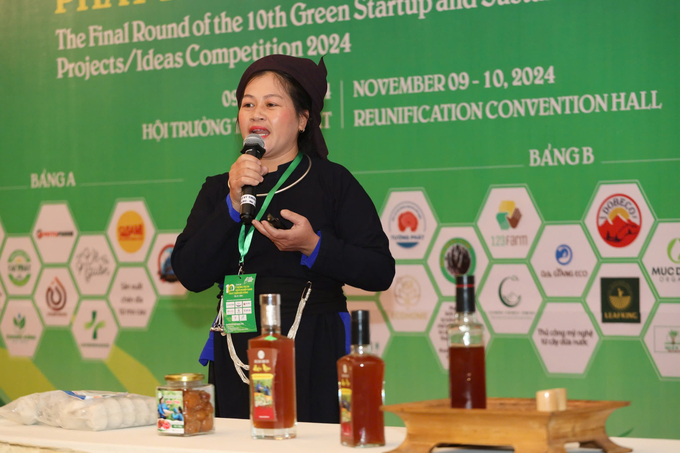
Contestant Ca Thi Bay from Bac Kan Province presenting the project "Enhancing the Value of Plums in Combination with Community-Based Tourism Development." Photo: BSA.
For the project "Enhancing the Value of Plums in Combination with Community-Based Tourism Development," the team led by contestant Ca Thi Bay developed a diverse range of plum-based products, including dried plum preserves, tam hoa plum syrup, and plum wine. Additionally, the project is developing an eco-tourism experience centered around plum farms, which aims to create employment opportunities, increase local incomes, and preserve traditional crafts such as weaving, along with promoting local cultural values.
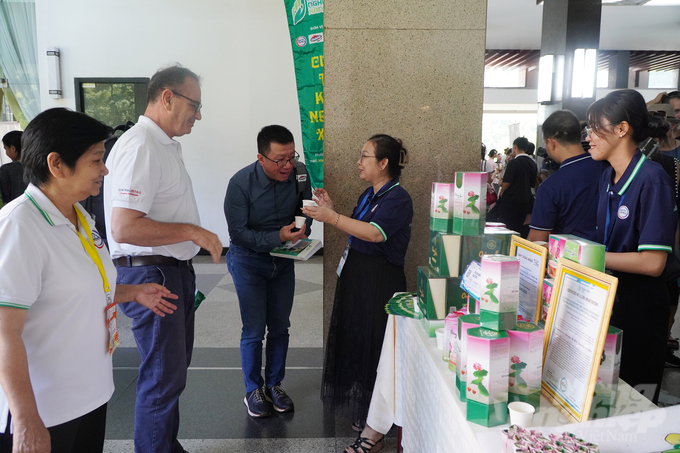
Contestant Nguyen Thi Hong Ngoc introducing her lotus leaf tea product made using Oolong technology. Photo: Nguyen Thuy.
With the aim of offering a beverage made entirely from fresh lotus leaves, which boast a unique flavor profile and multiple health benefits, the team led by Nguyen Thi Hong Ngoc from Dong Thap Province launched the project "Ecohome Dong Thap - Creating New Value from Lotus Leaves with OolongSen Products."
The OolongSen product currently meets various international standards in terms of quality and food safety, with certifications such as ISO 22,000:2018 and HACCP. "Ecohome's development focus involves improving product quality and building a sustainable value chain, thereby providing assistance within the local community and promoting the unique beauty of the Vietnamese lotus plant to the world," shared Hong Ngoc.
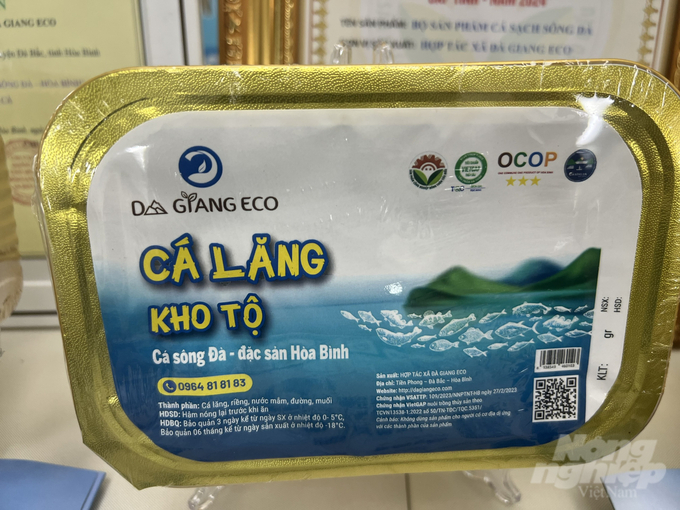
The "Da Giang ECO" project (Hoa Binh Province) utilizes local resources from the Da River to create a sustainable future, led by a group of young entrepreneurs from the Da Giang ECO Cooperative. The project's main products include black carp, Bagridae, and armorhead catfish. Notably, the project reared its aquaculture species without using chemicals or industrial feed, thereby ensuring safety, quality, and high nutritional value. In addition to its clean fish products, Da Giang ECO is developing eco-tourism experiences in the vicinity of the Hoa Binh reservoir, offering visitors the opportunity to explore the beauty of the Da River region and learn about the sustainable aquaculture process. Accordingly, the project's production process meets OCOP 3-star and VietGAP standards in addition to promoting environmentally friendly values.
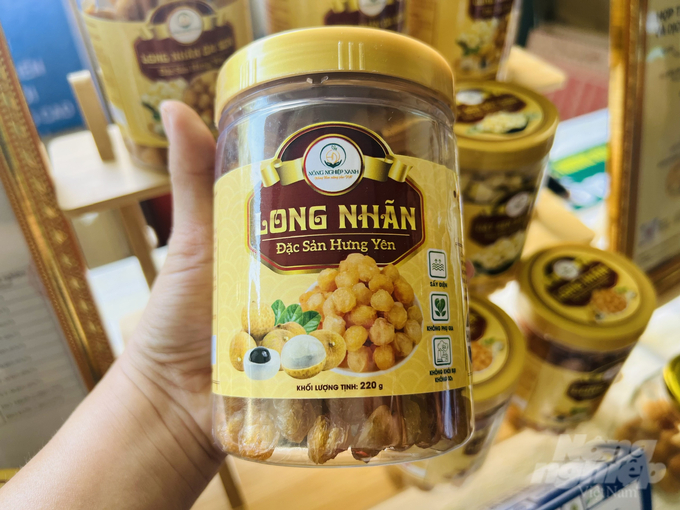
The "Hong Nam - Preserving and Developing the Essence of Hung Yen's Luc Ngan Longan" project, led by the Hong Nam Agricultural Production, Trade, and Service Cooperative (Hung Yen Province), focuses on several key products, such as fresh longan, dried longan, and longan with lotus. These products have acquired multiple certifications, including VietGAP and HACCP.
Translated by Nguyen Hai Long
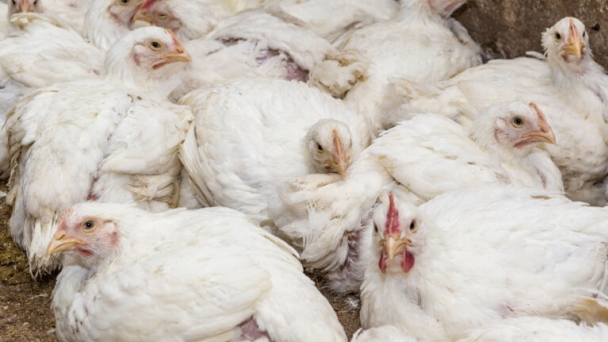
(VAN) EU Poultry, a Slovak poultry processor owned by Ukrainian businessman Dmytro Borodavka, has rolled out plans to invest almost €50 million into capacity expansion in the country.
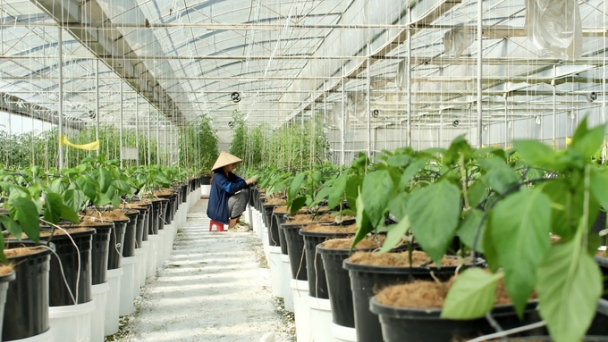
(VAN) Farmers in Moc Chau are capable of high-tech agricultural production. Therefore, any support for investing in net houses and greenhouses should be carried out on a large scale.
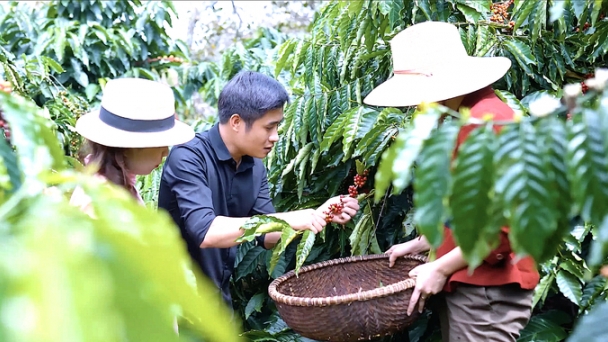
(VAN) "Our goal is to collaborate with farmers in cultivating organic coffee and delivering high-quality products with a distinct flavor to our customers."
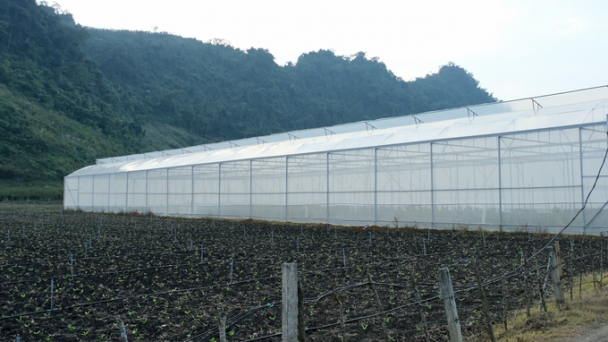
(VAN) The formation of a concentrated vegetable production area offers significant benefits, including reducing import of certain vegetables from China.
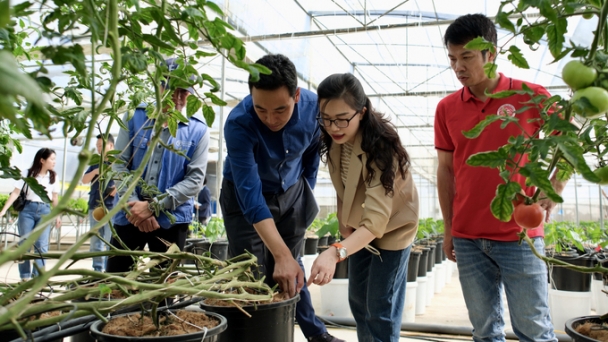
(VAN) A key feature of these models is the use of Nutrient Film Technique (NFT) recirculating irrigation technology, which is fully automated.
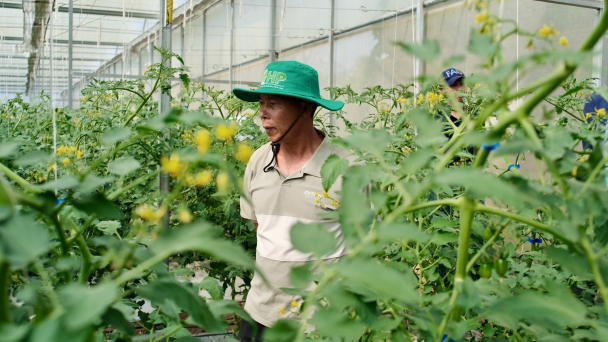
(VAN) At 53 years old, Mr. Ha Van Tien is determined to develop standardized greenhouses to supply organic vegetables and fruits for the clean agricultural products market.
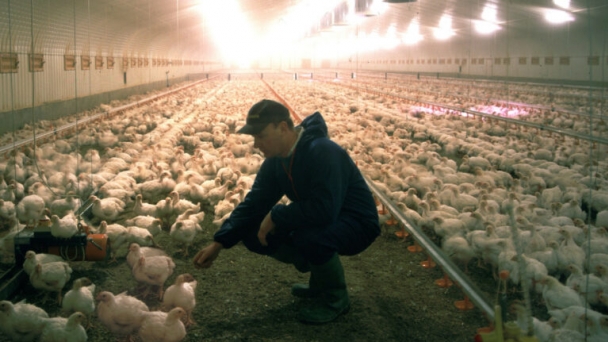
(VAN) Feed isn’t just fuel for poultry; it’s the foundation of health and growth. Accounting for up to 70% of production costs, feed quality directly impacts gut health, nutrient absorption, and feed efficiency.